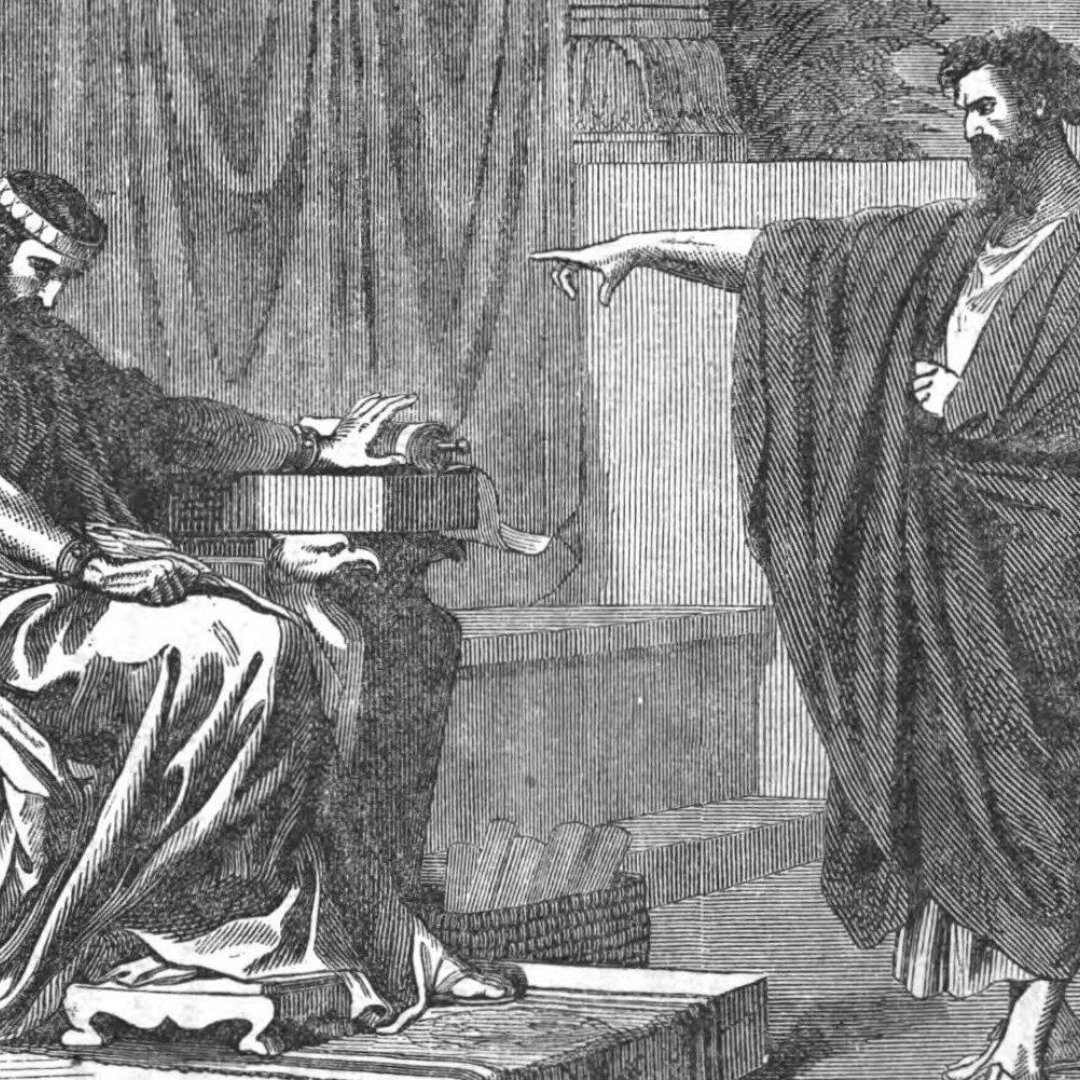
By Clement Harrold
September 13, 2024
1) He is one of the four major prophets alongside Isaiah, Ezekiel, and Daniel. And at 52 chapters, the book of Jeremiah has the longest word count of any book of the Bible.
2) We know more about his life than that of any other Old Testament prophet. Thanks to the treasure trove of biographical information contained in the book of Jeremiah, scholars have been able to piece together the prophet's life in considerable detail. We know, for example, that he came from a priestly family, and that he was born in the southern kingdom of Judah during the reign of King Josiah, whose landmark political and liturgical reforms took place in the late seventh century B.C. This makes Jeremiah a contemporary of Solon of Athens!
3) His life's work was to warn about the impending destruction of Jerusalem. Jeremiah lived at a time when the world's preeminent superpower, the Assyrian Empire, was collapsing. Mighty Babylon was the new kid on the block, and Jeremiah spent years warning the people of Judah that their failure to repent of their evil ways would result in their doom. His prophecies were fulfilled in B.C. 587 when King Nebuchadnezzar II of Babylon conquered Jerusalem and utterly destroyed the city, including Solomon's Temple.
4) He is known as the weeping prophet. Aptly described as the prophet of the eleventh hour, for almost half a century Jeremiah had the arduous task of telling the people of God exactly what they didn't want to hear. Inspired by the story of Jeremiah's life, the English Cardinal St. John Henry Newman wrote a homily about the prophet titled "A Lesson for the Disappointed." More encouragingly, however, the name Jeremiah means "the Lord will restore."
5) He is associated with the books of Baruch and Lamentations. In addition to the Old Testament book which bears his name, Jeremiah is also believed to have worked with his scribe, Baruch ben Neriah, on the books of Baruch and Lamentations. His disciple Baruch probably also served as an editor in the composition of the book of Jeremiah itself (see Jer 36:1-4).
6) His book is extremely complex. Not only is it the longest biblical book, Jeremiah is also a diverse and complicated work. Old Testament scholars John Bergsma and Brant Pitre have listed no fewer than seven literary sub-genres that make up the prophet's text: sermons, oracles, confessions, dialogues, prophetic signs, letters, and historical narratives.
7) He traveled to Egypt at the end of his life. Having successfully avoided being deported to Babylon during the Exile, Jeremiah eventually made his way over to Egypt to continue his lifelong mission of calling God's people to repentance (see Jer 40-43). Early Jewish tradition, corroborated by Christian figures like Tertullian, suggests that Jeremiah was stoned to death in Egypt, thus making him a martyr.
8) He is the one who hid the Ark of the Covenant. According to later Jewish tradition, it was Jeremiah who removed the Ark from Jerusalem prior to its destruction at the hands of the Babylonians (see 2 Mac 2:4-8). He took the Ark out of the Temple and hid it in a cave on Mount Nebo, just east of the Jordan River.
9) He is often regarded as a prototype of Christ. Over the centuries many Christian thinkers have been struck by the similarities between Jeremiah and Christ. For example, both men were chosen by God from the womb; both embraced priestly celibacy; both prophesied the destruction of the Temple; both were rejected and condemned by their own people.
10) The book of Jeremiah is the only place in the Old Testament that explicitly refers to "new covenant." Some of the most important words in the entire Old Testament are found in Jeremiah 31:31-33:
31 Behold, the days are coming, says the Lord, when I will make a new covenant with the house of Israel and the house of Judah, 32 not like the covenant which I made with their fathers when I took them by the hand to bring them out of the land of Egypt, my covenant which they broke, though I was their husband, says the Lord. 33 But this is the covenant which I will make with the house of Israel after those days, says the Lord: I will put my law within them, and I will write it upon their hearts; and I will be their God, and they shall be my people.
In a special way, Jeremiah is a prophet who points forward to the New Covenant era that comes with Christ. Amidst the darkest moment in Israel's history, he continued to preach the hope-filled message that God still walked with His people, and salvation would one day come.
Further Reading:
https://www.newadvent.org/cathen/08334a.htm
John Bergsma and Brant Pitre, A Catholic Introduction to the Bible: The Old Testament (Ignatius Press, 2018)
About Clement Harrold
Clement Harrold earned his master's degree in theology from the University of Notre Dame in 2024, and his bachelor's from Franciscan University of Steubenville in 2021. His writings have appeared in First Things, Church Life Journal, Crisis Magazine, and the Washington Examiner.













